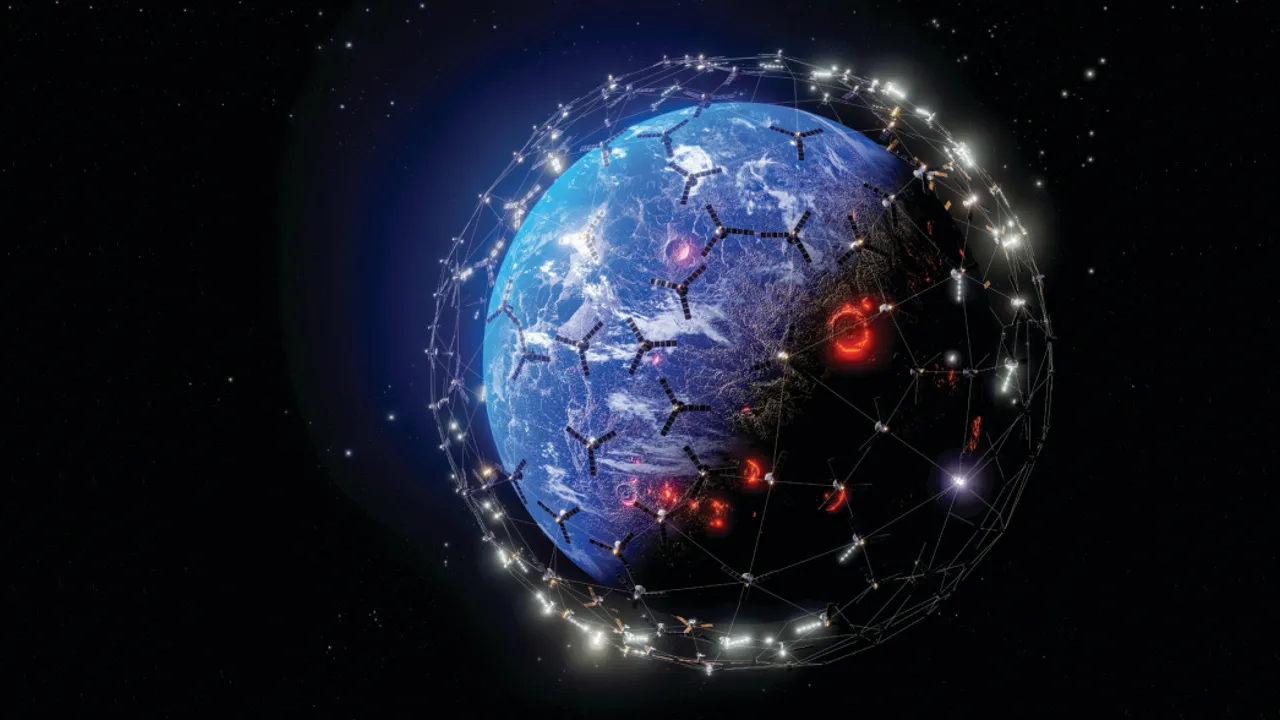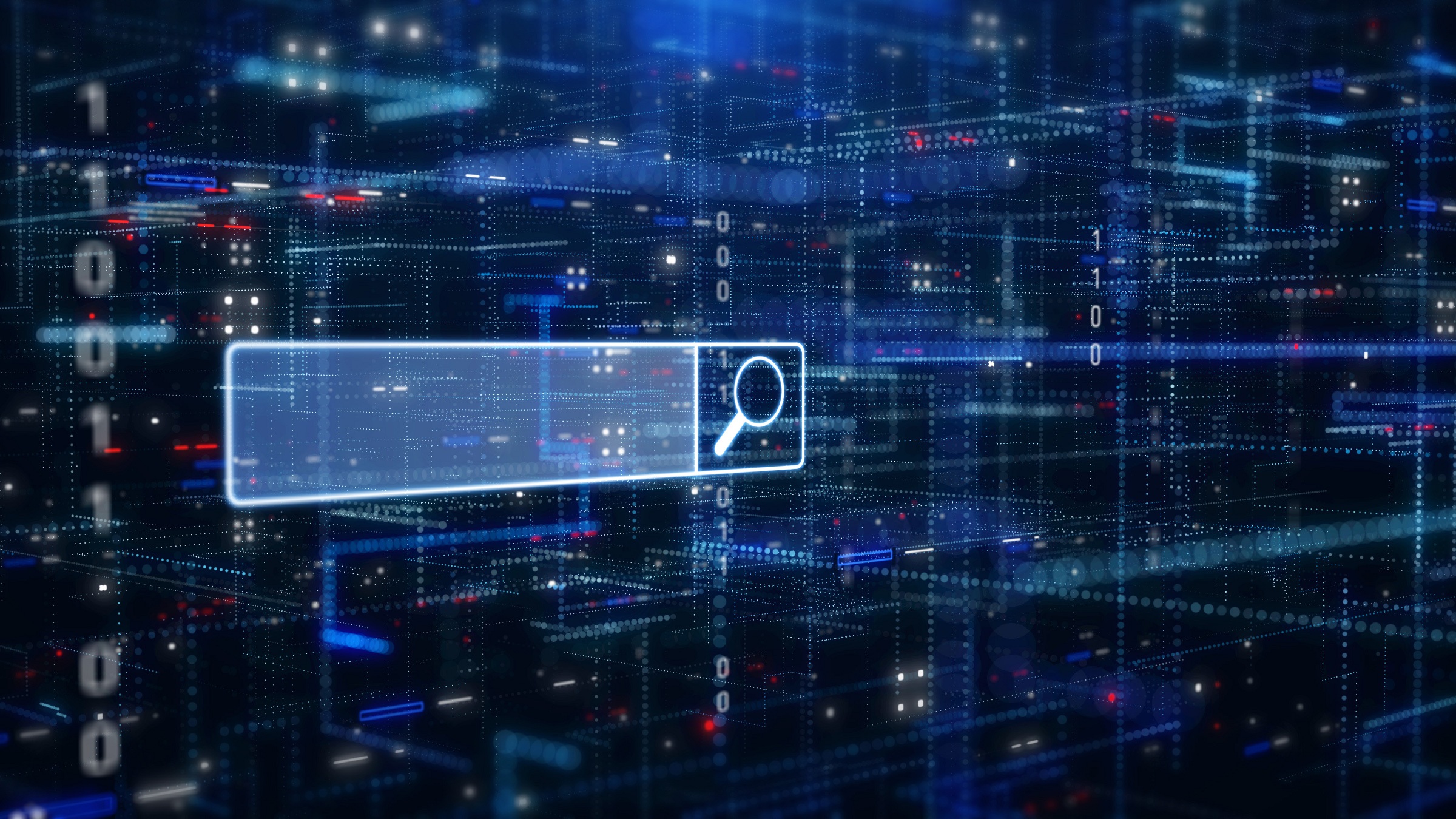In March 2024, members of the Subcommission on Quaternary Stratigraphy of the International Commission on Stratigraphy (ICS) voted 12 to 6 to reject the proposal that the Earth had entered a new epoch of geologic time. The Anthropocene proposal posits that human activity—not that of nature—has become the most significant driver of changes in the Earth’s ecosystems. Several reasons for the rejection have been offered. Some, such as the inability to place a precise date on the Anthropocene’s beginning, were less convincing than others. My feeling is that the evidence did not meet the strict stratigraphic standards of the dozen subcommittee members who voted against the proposal, standards that arguably are less relevant to the rest of us as we consider the environmental and other massive problems affecting humankind.
This Opinion column, however, suggests that even if that designation had been approved, it may have been short-lived. A new epoch fueled, shaped, constructed, and enabled by computing might be just around the corner; a new epoch whose implications are critical today, regardless of what the stratigraphic community decides, a new Cybercene epoch that is antithetical to human autonomy and efficacy.
Just as the Anthropocene proposal did not stipulate that nature no longer had any impact—natural phenomena and the laws of physics still apply—the Cybercene does not suggest that humans no longer play a role; Indeed, humans are indispensable to the Cybercene. Without the creation of the software, the crafting of the algorithms and protocols, designing the hardware, and the like, there could be no Cybercene. The human contribution in terms of sales, public relations, research dollars, training, machine-tending, conferences, and journals is incalculable. The growing, staggeringly huge, human investment is integral to this conjecture. And to help support this conjecture, this vast new symbiotic enterprise, which I am calling the computing complex, takes a central role.
The computing complex includes the totality of all things computationally connected. It includes non-human (technological) as well as human (both individual and societal) forces that together are creating and maintaining that vast digital assembly. These two forces are currently inseparable and complementary; neither is sufficient on its own.
This Opinion column suggests the computing complex is helping to fuel many of the problems we face, while, at the same time, degrading our civic intelligence, our collective ability to address these problems. This, however, is not a story of techno-determinism. The Cybercene is not inevitable, and humans still have the upper hand. But trajectories have momentum, and the computing complex enables some things to happen more readily than others. The hope is that broadly considering the effects of computing in-the-large in relation to the Earth’s systems will help us think more productively about trajectories, indicators, plans B, and collective countermeasures.
Entering a New Epoch
Because humans did not yet exist or were otherwise unable to record the data as it happened, the impacts upon the Earth that determined prehistoric geological epochs are ascertained long after the original occurrence via inspection of rock layers (chronostratigraphy). But circumstances have changed, including the newly acquired ability to note these changes in near real-time and the ability to admit new types of evidence. Many arguments have been advanced for the Anthropocene, including, for example, the industrialization of agriculture, the introduction of permanent chemicals into the environment, and the proliferation of nuclear weapons. Now, while the evidence from our current age also reveals permanent impacts, the forces acting on the earth today are larger and faster, due in large part, to computing power. With catastrophic tipping points looming we do not have the luxury—nor a compelling rationale—to wait for a new designation until we act.
Naming a geological epoch is a scientific endeavor that must fit evidence and be well-reasoned. But it is also a social and cultural framing that plays out on a broader stage, and this new framing has direct relevance to the computing community. It surfaces the social realities and responsibilities of computing and urges us to scrutinize the customary tropes and myths we live by. If there are indeed strong connections between the degradation of earth’s systems and impending climate disaster and the great acceleration of digital technology, the computing complex may require an immediate and thorough reappraisal—whether or not relabeling the geological epoch is necessary.
Like the proposed Anthropocene before it, the Cybercene would be yet another brand-new species, one that is hybrid and artificial. Demonstrating its existence will require new evidence and new arguments. While the research is still ongoing and a fuller story still needs telling, the seemingly strong connections between the computing complex and the earth’s sytems, strongly argues against complacency.
Imprints on the Earth
The impacts of computing on the Earth can be described via its direct and indirect effects. The direct effects are those that result from computation itself, via energy use, resource extraction, waste disposal, and so forth. The indirect effects, arising from the social deployment of computation, that hasten the speed and magnitude of changes to the earth’s systems, may seem less obvious. Because their specific contributions may be difficult to quantify, and to integrate and reconcile with each other, the entire proposition may be difficult to see as one thing. But, even individually, the diverse effects profoundly affect our ability to address existential environmental challenges, in addition to the fundamental social challenges facing humankind, including those that have “always been with us” and those of more recent vintage.
The computing complex necessarily includes social forces and their maldistributed effects. Unfortunately, the political economy that shapes the processes of computerization is often overlooked in the media and in the academy, leaving us with the mistaken assumptions that technology springs up out of nothing and that it is autonomous. Computing takes place within social contexts and, in theory, is under the control of humans—albeit unequally.
One potentially confounding factor is the fact that the Cybercene Epoch conjectures that the computing complex may supersede the role of humans as the primary influence on the earth’s systems, yet people are key elements within the system. While arguably, this may all become moot, when one or more of Earth’s tipping points are breached, the distinction is that the people are increasingly becoming part of the complex—not vice versa.
Great Acceleration
The “great acceleration” of the last 100 years describes historical trends mainly dealing with the meteoric rise of new technologies. Those accelerated changes are also reflected in changes to the Earth’s systems, via land and sea use, species extinction, persistence of chemicals in the environment, climate change, and other factors. Humankind’s technology accelerated the impact that humans can make, and the introduction of digital technologies presents new challenges.
The direct effects of computing are attracting attention. Computing energy consumption is rising rapidly as a whole (for example, data centers doubled their use of total global electricity in the last 10 years), while some sectors, such as cryptocurrency, block chains, and large language models are rising faster, doubling energy demands every few months. While the efficiency of processing of many devices is increasing, the net consumption is still growing, reminding us that increasing efficiency is, by itself, not the answer, a phenomenon first identified in 1865 by William Jevons who showed how the increased efficiency of burning coal led to increased usage. From the initial mining of rare-earth minerals to the ever-increasing number of discarded or unusable devices (including 75% of orbiting satellites), all aspects of the digital life cycle, including increasing consumption in general, have significant impacts.
Beyond Direct Effects
In addition to its direct effects, the computing complex has a variety of features that help bring about changes to the Earth’s systems. While, of course, computing enables us to better understand our situation (climate models being an excellent example), in this discussion of risk and effects of computing on the environment, I highlight the degradation of our collective ability to address the challenges facing humankind including institutionalizing deleterious practices, commandeering resources, strengthening and empowering irresponsible leaders, and the general polluting of the public sphere. Note that by downgrading our collective efficacy, the computing complex makes impacts that are no less real than those from more direct causes, such as the use of fossil fuels or mining crypto.
The beliefs, motivations, and assumptions that created this complex help extend its reach. Reductionist rhetoric about computing distorts the reality of the situation and our expectations in relation to technology. And as we digitize our mindset, pervasive societal problems, such as poverty and environmental degradation, are seen by some as problems that can be “solved” via technology. This is reflected in similarly simplistic myths: The economic doctrine of growth at all costs, for one, and the miraculous ability of the “free market” as the provider of all things to all people, for another.
If, for example, the future development of AI is framed as a race between the U.S. and China that could be “won” by one country or the other as it is frequently in the press, the more important questions such as: “What is the technology actually going to do for us and who is to gain or lose” are not asked. This framing also sidesteps, as is often the case, the idea of regulating or otherwise shaping the technology for social benefit, by prioritizing technological development over social scrutiny. Another example: If democracy is understood solely in terms of algorithms or as something that, above all, must be convenient, the possibility of a rich public sphere is never realistically considered.
Democracy—or Something Else?
Particularly within democratic countries, citizens rely on each other to participate responsibly, through voting and through other actions they take. Given that social dependence, erroneous and misleading information, particularly when digitally weaponized, poisons the public sphere. It encourages candidates bearing misleading, simplistic, and violent rhetoric. And it increases the likelihood that we will respond inappropriately to the existential risks we face such as climate change, with its irreversible tipping points close at hand.
When democracy becomes imperiled, the danger of authoritarianism also rises. Bad actors often have (or will obtain) large shares of the media environment as well as access to increasingly sophisticated surveillance systems. Authoritarian governments, almost without exception, are corrupt and have strong connections with organized crime; and both have a penchant for environmental despoliation and distaste for citizen autonomy.
But even within democratic societies, money is often converted into power. The richest people in the world now are likely to be tech executives and they and their companies have become increasingly generous lobbyists. Needless to say, the purely economic view of the world as a source of private profit is often at odds with seeking the common good. And, because the digital titans have access to the data and the ability to analyze and commoditize it, they occupy the prime locations for devising self-enriching algorithms. That explains why social media algorithms drive people to extremist sites and why mobile phones are designed to be addictive. Perversely, this situation rewards people for not doing the right thing. Behavior changes when rewards change. As rewards accrue for bad behavior, the computing complex in a sense is training its overseers to behave by its rules: The Cybercene Epoch draws nearer as the computing complex creates more and more people in its own image, “tools of their tools,” as Thoreau had forewarned in 1854. Incidentally, it is this reflexive characterization that helps distinguish the computing complex from the “technosphere” concept that focuses on industrialization and material output.
As the severity of the impacts increases, our civic intelligence may become dangerously degraded. Humankind’s collective ability to address challenges, rarely calm and reflective, becomes even less clear-headed. Violence, fear, and distrust, all grow, and the collective urge toward authoritarian leaders brings violence and war, both especially unwelcome when the need to stem the violence being done to the environment is so great.
Computer Professionals and Professional Organizations
The age of cyber-dominance is presumably still in its infancy—and it might not proceed beyond that. At the same time, the share of resources devoted to the computing complex continues to expand. The number of people building and maintaining the complex is growing and corporate wages are far higher than those offered by governments or NGOs, entities with different motivations. And one of the major outcomes of research dollars today is learning how to use computing to replace human labor. The networked digitalization continues its incursion into the human body (and brain) and the systems of political control, surveillance, oppression, sabotage, disinformation, policing, and warfare, are also on the rise. Indeed, the burgeoning universe of “things,” endowed with connection capabilities and “intelligence,” compounds the risks; new unsettling possibilities, such as new AI-developed pandemic-grade viruses, no longer seem farfetched.
Today’s real problems are not technological problems and they do not fall within our traditional bailiwick. Interdisciplinary collaboration will be vital if we are to make any progress. Organizations of computing professionals are also, of course, obliged to help ensure the social responsibility of the profession. At least part of their job is to promote work for the common good and to actively discourage that which is not. This is a tall, but not impossible, order.
Each aspect of the direct and indirect forces discussed above has implications for future work. Computer science education is important but focusing solely on the technology is inadequate preparation for the critical work ahead. As shown in the work of Charles Travis on the digital Anthropocene, the humanities, particularly with its focus on reflection and contemplation could be a welcome complement. Likewise, Christoph Becker’s work with “critical friends” infuses computer science education with relevant critical theories from the social sciences.
Computing can, obviously, make positive contributions to addressing these challenges. This has always been possible, but the era of unscrutinized, naive, and unregulated tech must end. The future of computing is too important to be left to computing companies who, with the assistance of governments and high finance, have caused or exacerbated many of the problems discussed here. They should, on the other hand, be compelled to make substantial contributions, both voluntary (giving paid leave to programmers who work for the public good) and involuntary (via regulation and taxation), to efforts that support the public good—and without the means to put their thumbs on the scale. This Opinion column is concerned with risks of computing, particularly toward the environment and the unfolding climate emergency. For that reason, it has not focused on efforts of some computing corporations to promote the public good. The question raised but not answered here, is whether this work is in any way adequate to stem the tides discussed here. There are always counternarratives and counterforces at play but there is no law that deems them equivalent.
As I have described, the indirect effects of computing make impacts on the Earth’s systems that are no less significant than the ones caused directly. The unfortunate reality is that computing helps amplify some of humankind’s worst instincts. Very little is standing in the way of more commodification, more fake news, more surveillance, and more degradation of the public sphere. And when our collective civic intelligence degrades, so do the Earth’s ecosystems. Paradoxically, the reflexive habits of many people and institutions to dismiss warnings of ongoing or near-term technological harms helps build the case that human beings may indeed be unable to address today’s vital challenges.
Needless to say, this work has numerous precedents and a widespread review of them here is not feasible. The expectations from technology also similarly numerous—and diverse. These span the range from total social collapse scenarios to the emergence of a hyper-intelligent and wise planetary consciousness. When it comes to big transformations, I believe they are to be expected. But anticipating with any accuracy the actual shape and nature that these big transformations assume is the more vexing part. And with serious multiple tipping points looming, I am putting my money on nature, not computing, as the last word. On the other hand, there is an abundance of more probing (and useful, to my mind) explorations, such as the knowledge infrastructures work by Paul Edwards and others in which risks and potentials of new organizational knowledge assemblies are explored via numerous perspectives, frameworks, and research avenues.
Computer professionals, often with full cognizance of the urgency of many of the problems ahead, helped create the precarious circumstances we find ourselves in. That changes to the way we do business are needed seems crystal clear. We need to re-evaluate our priorities and mindsets, our beliefs, values, and paradigms, sooner, rather than later. Computer professionals must acknowledge the harms our creations have helped enable, as well as our responsibility going forward.
The Anthropocene designation would place humans at the center of the struggle for the future. Given our checkered history, that, in itself, would be a mixed blessing. But the Cybercene alternative, whose effects are becoming increasingly difficult to ignore, would be far worse. If a transition to a full-blown Cybercene occurs, facing humankind’s challenges would be well-nigh impossible.




Join the Discussion (0)
Become a Member or Sign In to Post a Comment